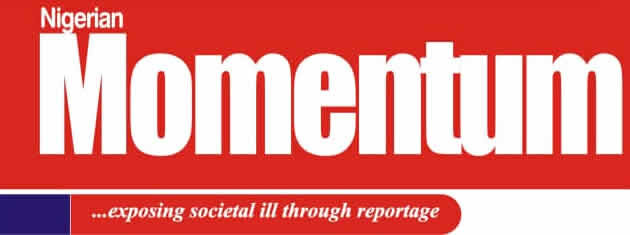BEING TEXT OF PAPER PRESENTED BY HON. IFEANYI G. ISIKAKU TO THE COLLEGE CURRICULUM FOR JUNIOR COURSE (JC) OF THE NIGERIA CUSTOMS COMMAND AND STAFF COLLEGE GWAGWALADA (NCCSC), ON THE OCCASION OF OPERATIONAL STUDY TOUR FOR STUDENTS OF JUNIOR COURSE 21 OF NIGERIA CUSTOMS COMMAND AND STAFF COLLEGE TO FEDERAL OPERATIONS UNIT, ZONE ‘C’ OWERRI
CUSTOMS ENABLING NATIONAL SECURITY THROUGH MODERNIZATION OF CONTROL PROCEDURE PRESENTED BY HON. IFEANYI G. ISIKAKU,
CHAIRMAN, ASSOCIATION OF NIGERIAN LICENSED CUSTOMS AGENTS (ANLCA), ONNE SEAPORT CHAPTER
ABSTRACT:
The essence of this study is to examine the interplay between Nigeria Customs Service operations and national security, through modernization of its control procedure.
Operational efficiency of the Nigeria Customs Service is pivotal to the country’s general survival and well-being. This is so much so that as a revenue generating agency, the economy of the country is directly tied to efficient Customs operating system. The security of the country is improved when the Nigeria Customs Service checkmate the entry of controlled materials like: chemicals, substances, hazardous materials, proliferation of small arms, etc and other non-controlled items in a disorderly manner.
The success of this assignment is tied to the collaboration with other sister agencies of government in providing intelligence across board, with a central information or command centre. Modern security architecture improves efficiency of the Nigeria Customs Service in the discharge of its statutory mandate.
Inter-agency collaboration should be extended beyond local national agencies to accommodate international agencies and across international platforms. This paper seeks to objectively evaluate how operational efficiency could be improved when technology and collaborations are engaged for regional stability. The revelation of the deeper context of modernization of control procedure engages the value addition chain in national life and stability.
INTRODUCTION:
The quest for operational efficiency imbued in strategic national security without sacrificing economic growth is the objective of the Nigeria Customs Service. This expectation is laced with so many challenges. In times, the Nigeria Customs Service has tried to demolish the roadblocks, often times in the form of bureaucratic bottlenecks, ancient technology and human capital disadvantage.
However, the leadership and management of Nigeria Customs Service in recent times, have consistently been on a developmental mode, traveling through a checkered trajectory to improve its service delivery. As a critical stakeholder in socio-economic and security sectors of the Nigerian economy, the Nigeria Customs Service has constantly maintained a growth trajectory by engaging adequate manpower to deliver on its mandate.
The Customs Service has deployed state-of-the-art technology for seamless services and has not rested on its oars. Training and retraining of manpower has become a norm to raise generations of manpower pool to meet international best practices. The current B’Odogwu platform that was launched recently is a testament of local content initiative that provides the requisite platform for service delivery, while maintaining national security as a locally developed platform/software for Nigeria Customs Service operations.
EMPIRICAL REVIEW:
CUSTOMS ENABLING NATIONAL SECURITY THROUGH MODERNIZATION OF CONTROL PROCEDURE:
The Nigeria Customs Service is duty-bound by the law establishing it, to serve primarily on economic and security purposes. To this extent, the long-term goal of national security is achieved through the strategic critical role of the Customs, through modernization of control procedure. Due to the nature of the Service, the control mechanisms get more complex as it progresses, because of its multi levels of access, command and control. Yet, technology simplifies it through proactive control procedure.
In this digital age, technology has continued to evolve at a very fast pace. Therefore, to be at par, the Nigeria Customs Service needs to deploy a geometric progression speed as against the arithmetic progression of technology to avoid playing catch-up. To this end, real time online platforms should be provided by the second interplay, among all the protocols in the international trade environment.
Modernization enables Customs to determine the truth in some transactions that are not very transparent. Modernization and deployment of technology plug revenue loopholes and ensures no revenue loss to the government.
Modernization through technology also helps to guarantee balance of trade. This also ensures that the country is not turned into a dumping ground for all sorts of items.
To achieve the set out objectives, the Nigeria Customs Service would have to work in various ways and terms of partnership with other bodies or entities. One of such is through collaborations with sister agencies locally.
Just like in the financial sector, where there are lots of inter-agency collaborations with Police Fraud Unit, EFCC, NDLEA, ICPC etc. Any suspicion of fraudulent activity on a particular account number, such account is flagged and placed on lien, until a resolution is reached. Such a platform can accommodate the Nigeria Customs Service to flag any container, suspected to carry illegal items or is suspected to be aiding and abetting money laundering or any other fraudulent economic activity.
The Nigeria Customs’ B’Odogwu can as well accommodate inter-agency platforms, so that when an entity is flagged, such flagging should be viewed in real time across inter-agency platform to enhance collaboration and action.
However, the Nigeria Customs Service has continued to define its operations by modernizing its operational parameters. In view of the above, the collaborative initiatives with other countries’ Customs Services on working tours and assessment on modern approaches to service delivery becomes a continuous process.
Periodically, exchange of programme will serve useful purpose by exposing officers and men to the dynamics of the job in various and different locations around the world. Experiences garnered will become an integral part of the policy development process.
This collaborative effort should be extended to, not just other Customs Services, but to other international organizations like: Interpol, African Union agencies, UN agencies, EU agencies, DEA etc.
The benefits of such extensive and intentional collaborations will often be seen in checkmating the proliferation of small arms and other dangerous merchandise, which ultimately fuels conflicts and engenders terrorism across the regions. Secured borders are testament to effective border management and territorial integrity, through collaborative effort of Nigeria Customs Service, Immigration Service, Quarantine Service, DSS, the military, police etc.
Modernization of the control procedure also requires kinetic and non-kinetic approaches.
While both are applicable options, but the usage is determined by different prevailing circumstances. Therefore, intelligence gathering mechanism is the fulcrum of non-kinetic control system that ultimately prevents security breaches. To enhance this operational efficiency, improved intelligence gathering capability is necessary, often times this collaborative aspect exists only in theory/principle, but always or almost absent in practice because agencies are usually unwilling to grant unrestricted access to information sharing.
Modernization of control procedure, should as a matter of urgency, demolish the concept of competition and enhance collaboration among agencies, and to realize that they work towards the same goal of national security and not at cross purposes.
SUMMARY, CONCLUSION AND RECOMMENDATIONS:
In conclusion, it is the opinion of this paper to re-evaluate inter agency relationship to improve collaborative efforts at every level.
Agencies should see themselves as partners and not competitors. This is often influenced by glory-hunting.
Policy makers should constantly evolve to be in tune with present realities.
Management should not alienate themselves from the rank and file and to be in touch with current developments.
While periodic evaluation of control procedure for operational efficiency is equally, recommended.
Thank you for listening.


